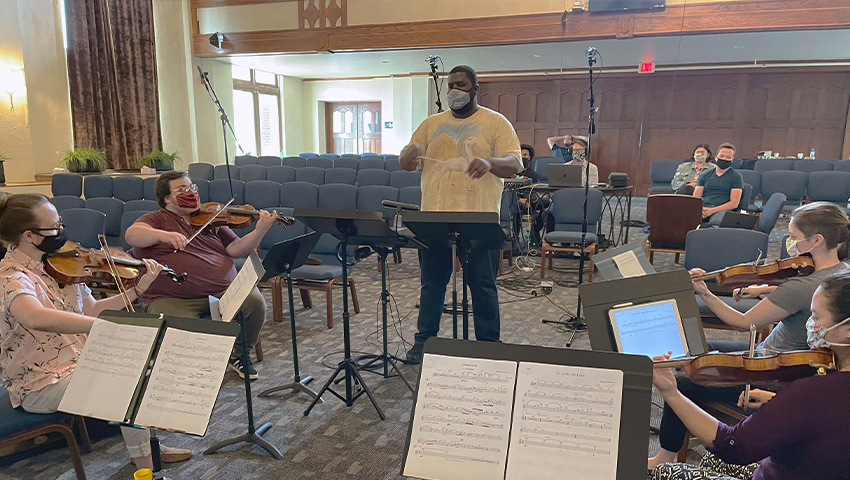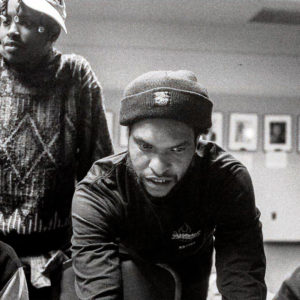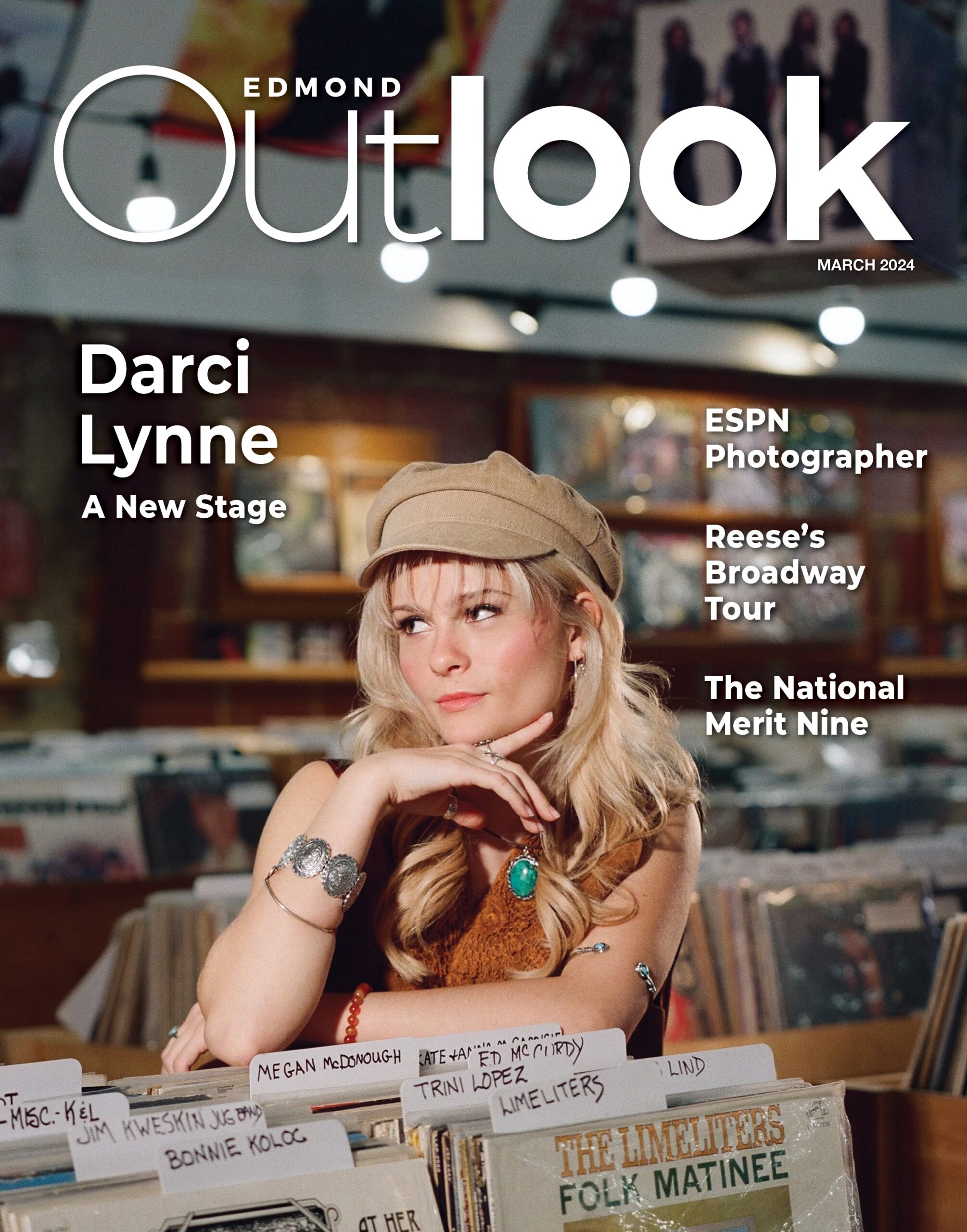Kangwa’s Greenwood Opera

Edmond native, Kangwa Mundende, had no idea that a middle school orchestra class would direct the musical course of his life. He was that “normal” kid without a musical background who is now composing a landmark opera about the Tulsa Race Massacre. He was also that kid who never learned about the Tulsa riots in history class.
“I was playing pickup basketball, and a college teammate mentioned it,” Kangwa said. “I was like, ‘Dude, I’ve never heard of this!’ He said, ‘Look it up, man—it was terrible.’ I did, and I was shocked that it happened and shocked that the story had been so hidden. That was May 2020 when things got real, so I decided that as an artist, the story of Greenwood needed to be taken seriously by society-at-large, through the grandiose nature of opera.”
Kangwa committed to writing his first opera, and he’s been singularly focused on learning the business of opera production ever since. At each step, from soliciting grants to writing the storyline and meeting with musicians, he’s immersed himself in the project that will likely take two more years to complete.
“I had this stereotypical notion about the lonely starving artist, thinking and toiling over his magnum opus—but it takes a lot of people to bring an opera to life,” Kangwa said. “I wasn’t raised with classical music. It was introduced to me at school. I transferred to Edmond North high school just to be in the orchestra led by Peter Markes. He brought out something in me that I didn’t know I had. It was transformative. Now I have incredible guidance from Painted Sky Opera at the University of Central Oklahoma.”
Kangwa’s opera, named Greenwood, is a fictionalized retelling of the Tulsa race riots. “The opening is a negro spiritual called Nobody Knows, based on my own discovery that ‘nobody knows about this story,’” Kangwa said. “Next is a discussion amongst the black community about how to deal with the growing racial agitation, which ultimately leads to the confrontation and aftermath.”
“It’s not just a white versus black story–that would be a dishonest conversation because it’s more complex than that. It’s a power structure that includes economy, media, and societal failures. I’m trying to humanize the interconnectedness of being American and codify what happened; a collective unburdening, so that we can assure that such violence never happens again.”
“Opera wasn’t widely used for political or nationalistic purposes until the 19th century and more recently in the 1980s in America,” Kangwa said. “American opera is embracing composers and performers of color who can give light to historical stories that aren’t normally told. I’m not the first black opera composer, but opera is less known in the black community, so I’m having to create those bridges.”
Finessing such a large work of music has become more manageable in segments. Kangwa created a video of a choir singing a chorus from Greenwood, and he’s gathered instrumentalists to record other excerpts. “It’s honestly an incredible experience to hear my music come to life, and it helps me pinpoint what is and isn’t working.”
In 2019, Kangwa composed an anthem to honor his late mother. Kangwa was humbled to learn that the video, Grace, was a first-round Grammy nomination. “Music is such a community thing. I’ve studied hard to try and capture the magic that would lend credence to my opera. Tulsa’s story deserves to be told in a way that makes a cultural impact, and so far, the people who know about it are really, really excited.”
To learn more, go to kangwamundende.com




